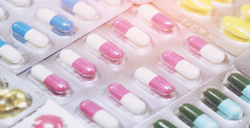
Over the past year we have implemented the technology that enables effective sample preparation for USP 661.2 testing of blister card samples in-house, using only formed blister material and bulk lidding.
CLIFTON, N.J. (PRWEB)
October 05, 2022
CS Analytical Laboratory, the world’s only FDA regulated contract laboratory exclusively dedicated to providing regulatory solutions and qualification testing services specifically for drug product and medical device container systems, is pleased to announce that it has developed and implemented laboratory capabilities to provide complete USP 661.2 physicochemical testing specifically for sealed plastic or polymer-lined blister card package systems. CS Analytical capabilities will address all common forms of blister card materials including foil-lidded PVC, PVDC, and Aclar combinations, as well as cold-form aluminum blisters.
“Implementation of the pending USP 661.2 testing requirements for blister package systems has proven to be a challenge for manufacturers since the methods were first published in USP NF in 2016. For numerous reasons, manually filling a sufficient number of blister cards required for the testing with USP-grade water is a real challenge in a manufacturing environment where sealing equipment exists” commented Chief Scientific Officer Brandon Zurawlow. “Over the past year we have implemented the technology that enables effective sample preparation for USP 661.2 testing of blister card samples in-house, using only formed blister material and bulk lidding.”
USP 661.2, which applies specifically to plastic package systems, consists of a series of tests performed on an extract prepared by filling the package system to its nominal volume with USP-grade water and heating it at controlled conditions. Due to the small volume of blister cavities relative to the amount of extract required to complete the tests, many samples must be prepared and the resulting extract combined for analysis. Currently, manufacturers must undergo a cumbersome process to shut down their line (or at least schedule time outside of production), manually fill sufficient cavities with water after forming, and send them for sealing. Many companies find this difficult from both a production and quality perspective. Other face challenges with consistent filling using USP-grade water, or with quality sealing due to water on critical surfaces. Ultimately, sample preparation for this test is often time consuming and costly and when all variables are taken into account. The ability to have an FDA regulated, cGMP laboratory replace this process and perform it in-house as part of the overall test program is most ideal.
As referenced in our recent blog, recognizing this industry need, the CS Analytical team has worked diligently with key partners to develop a sample preparation process that has proven to be adaptable, effective, and efficient. Clients will no longer need to shut down blister lines to provide extraction-ready samples. This work can now be done in the laboratory setting, further removing limiting other variables like the shipment process where damage can be caused and environmental conditions cannot be controlled.
About CS Analytical Laboratory
The only FDA regulated, cGMP laboratory dedicated exclusively to the complex world of drug and medical device container and package qualification testing, the CS Analytical Team includes the world’s leading experts on all relevant USP and EP requirements and the thought leaders and pioneers on CCI (container closure integrity – CCI) testing. Offering a full suite of laboratory services to include all USP, EP and JP procedures specific to glass, plastic and elastomers as well as complete USP 1207 services that span basic feasibility studies, component qualification programs and advanced method development and validation for helium leak testing, vacuum decay, high voltage and headspace analysis leak testing. CS Analytical is the one source that can ensure your medical product container and package system meets the strict and complex regulatory requirements.
Share article on social media or email:

